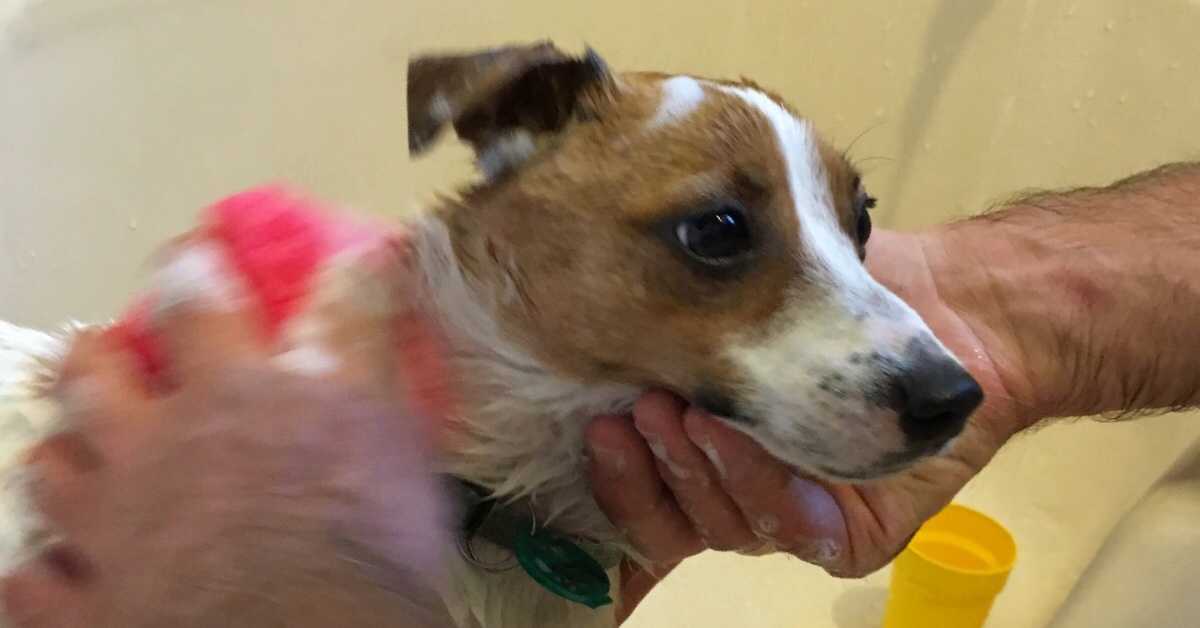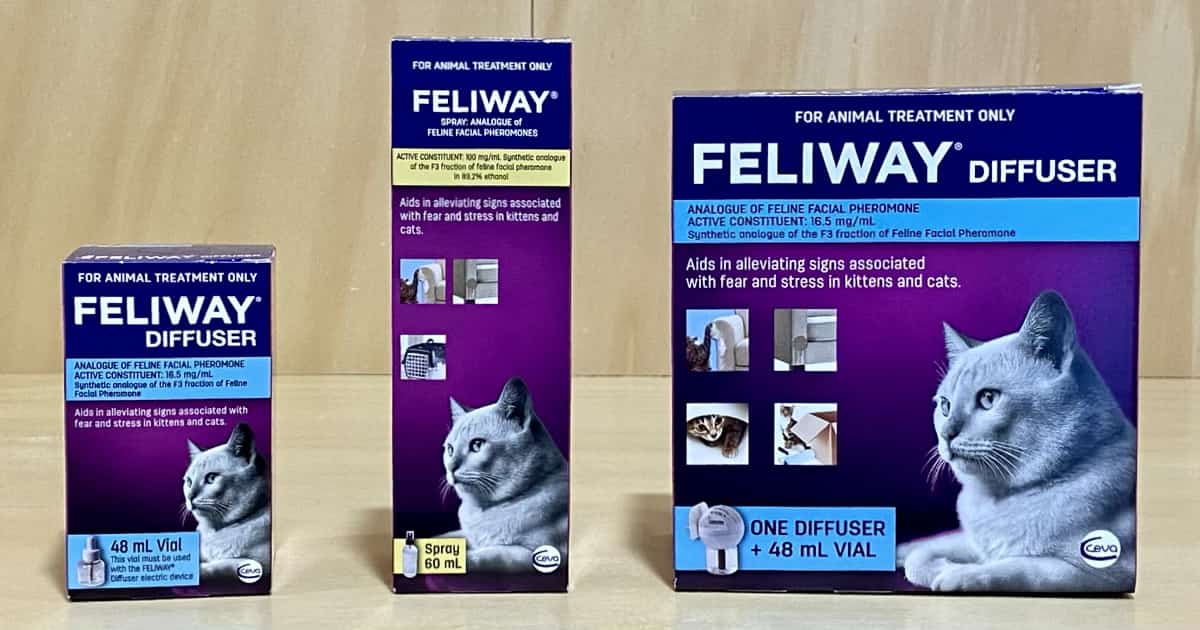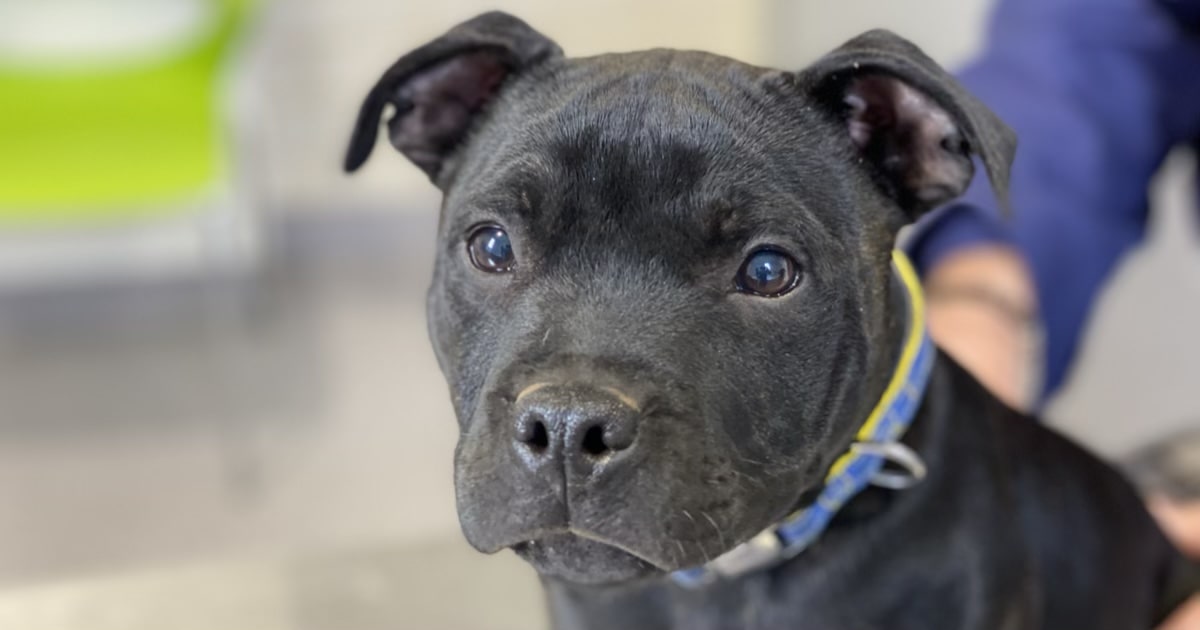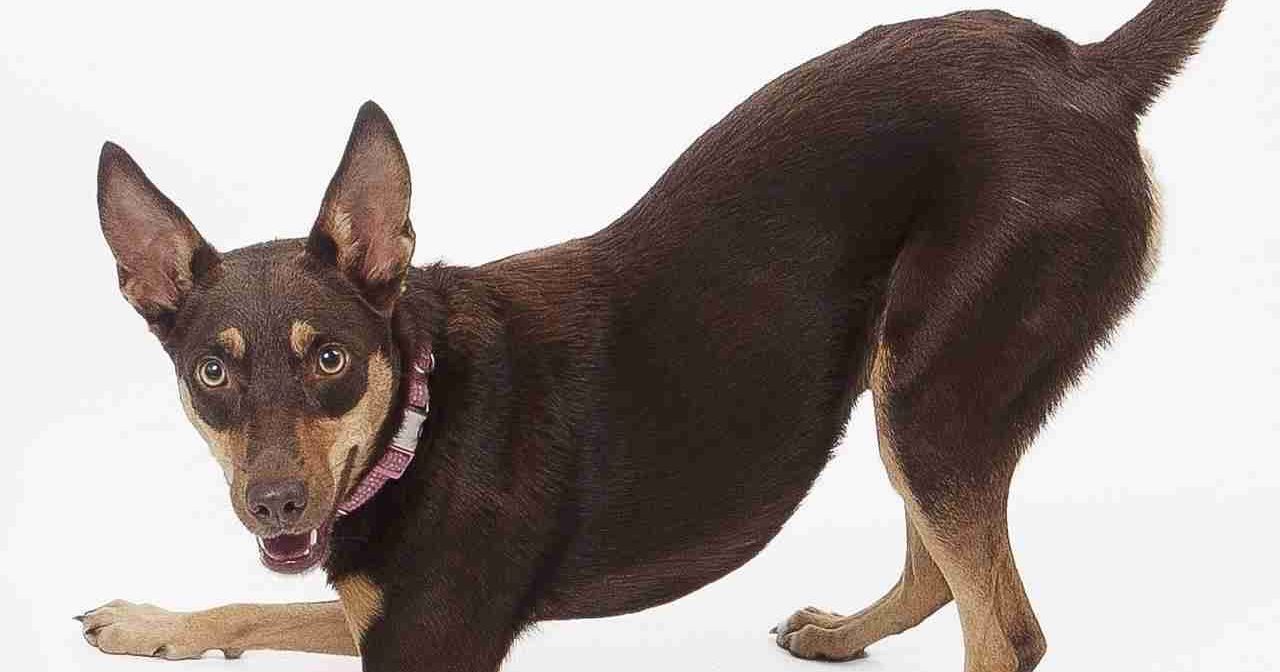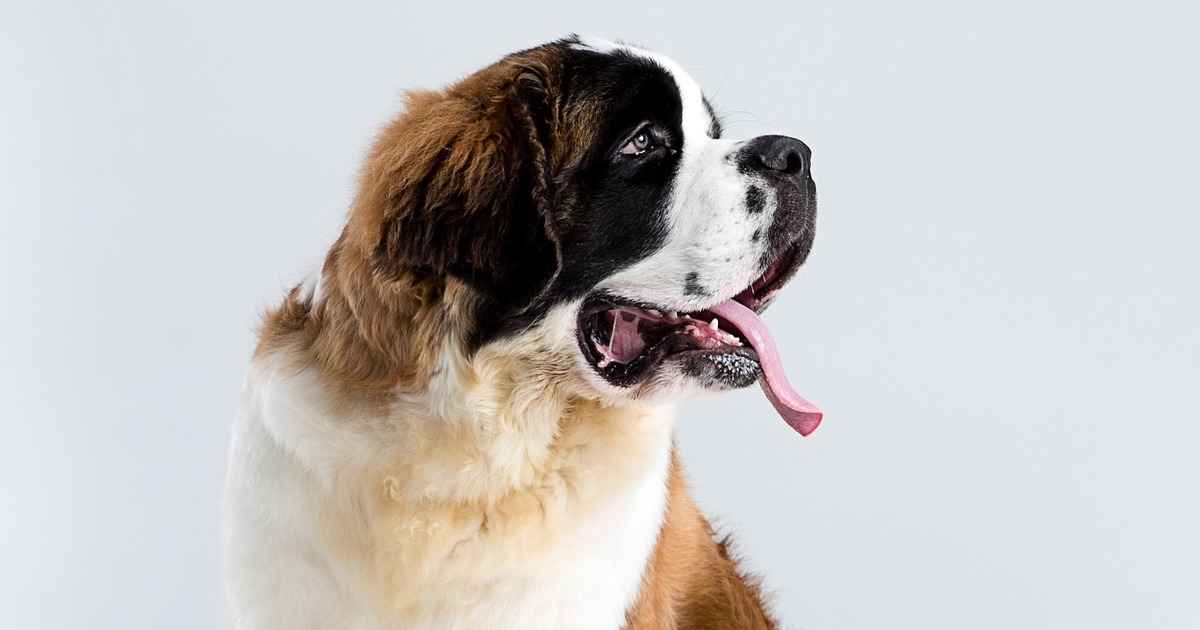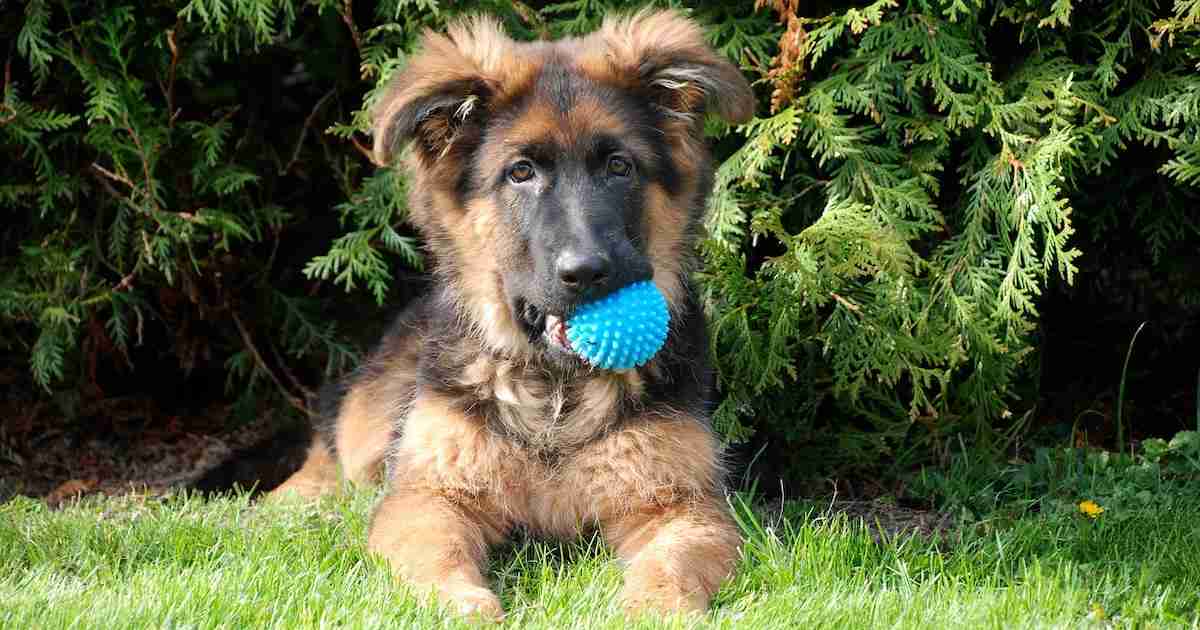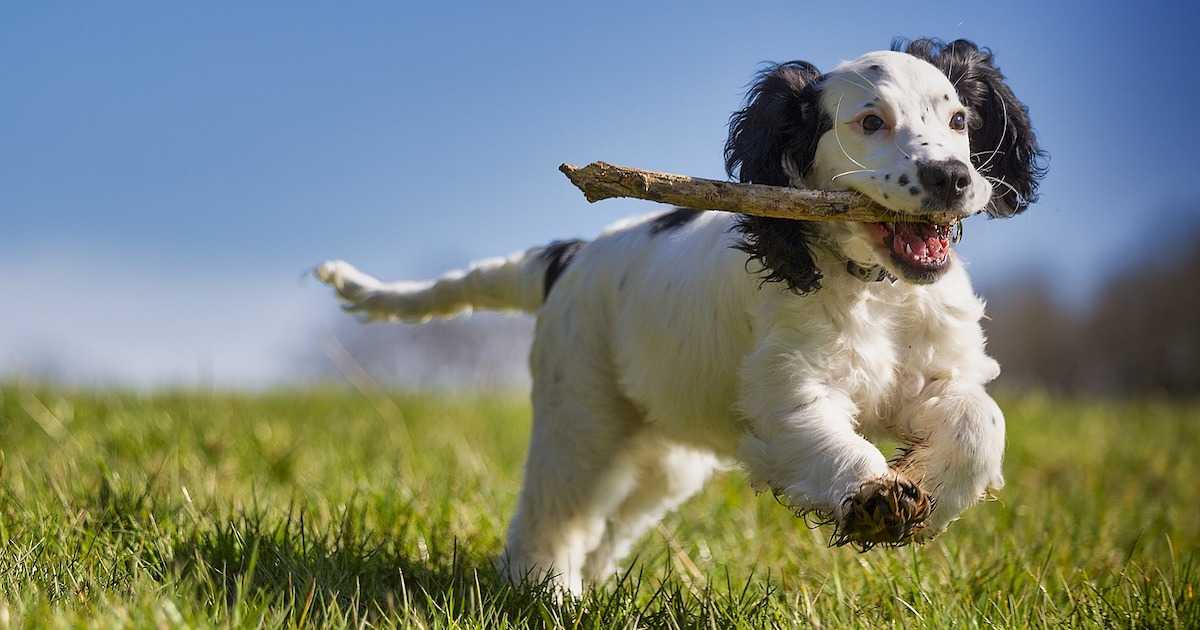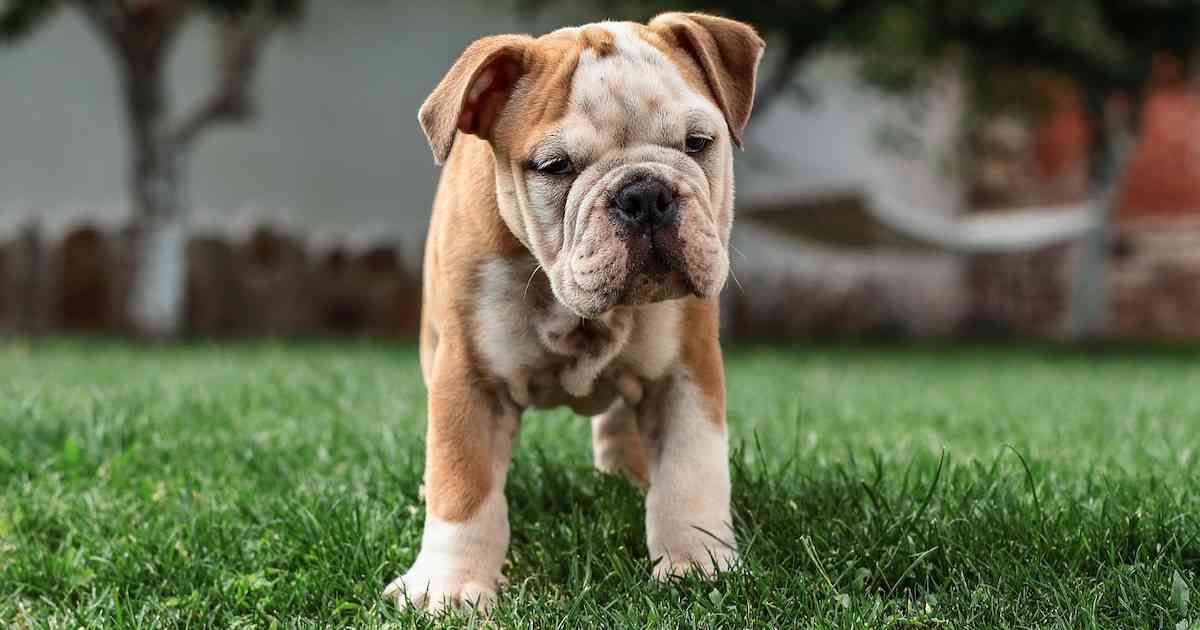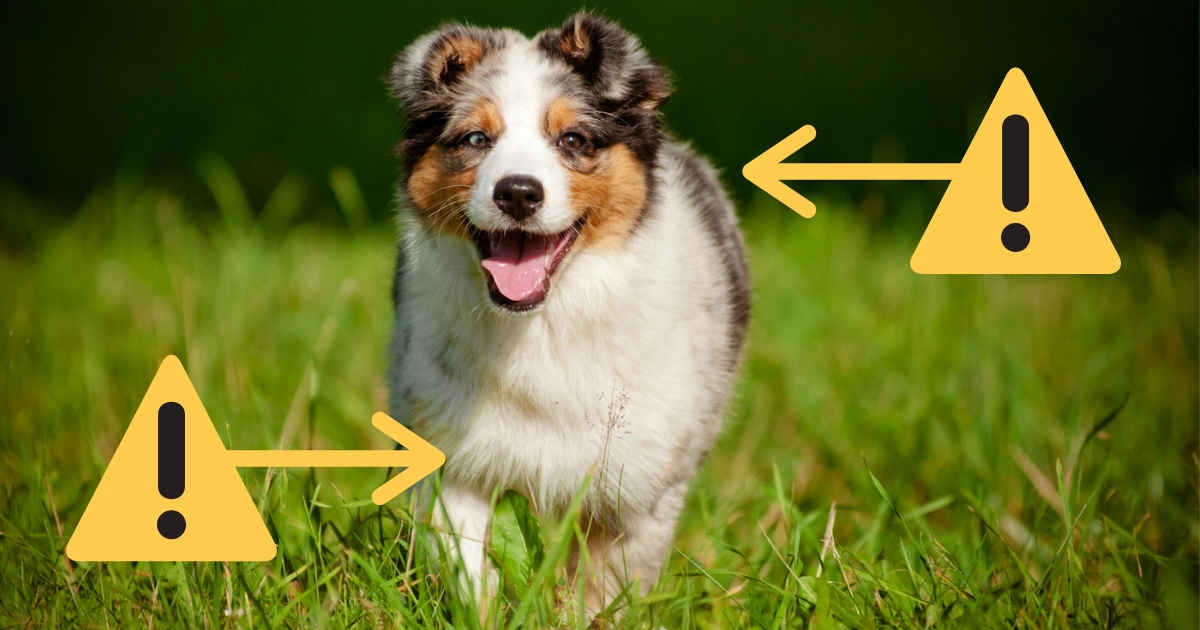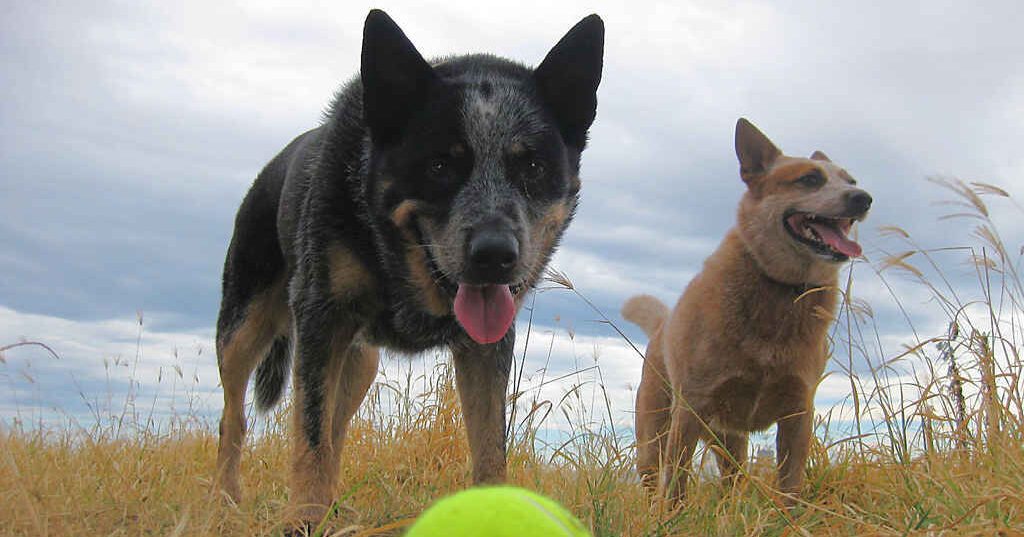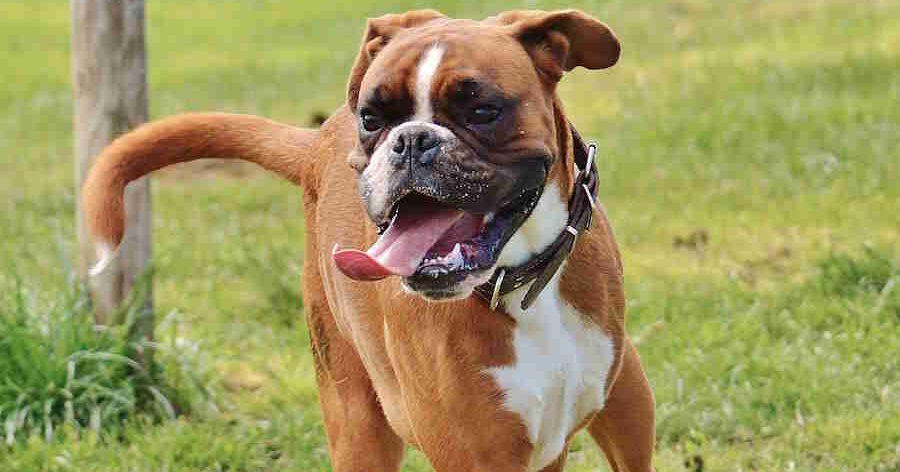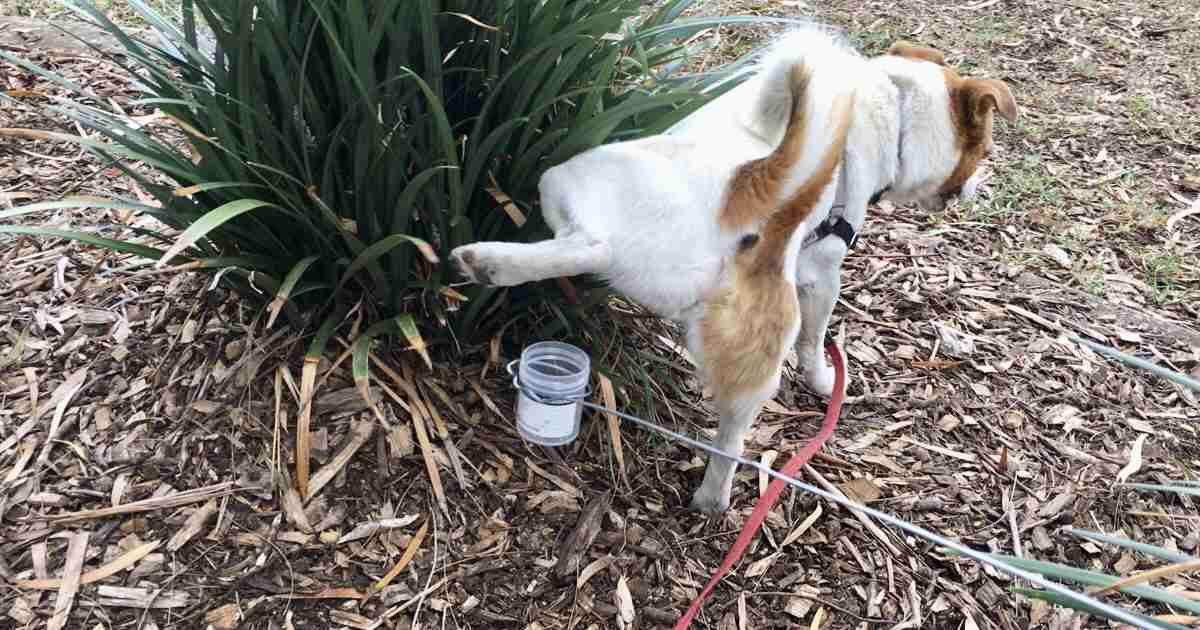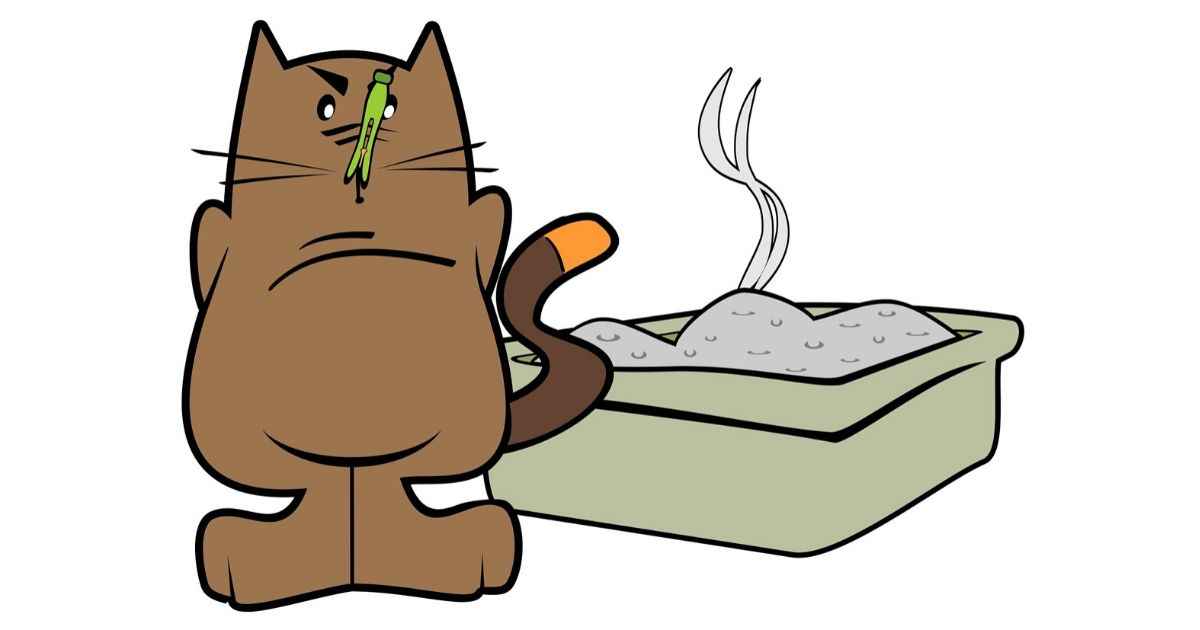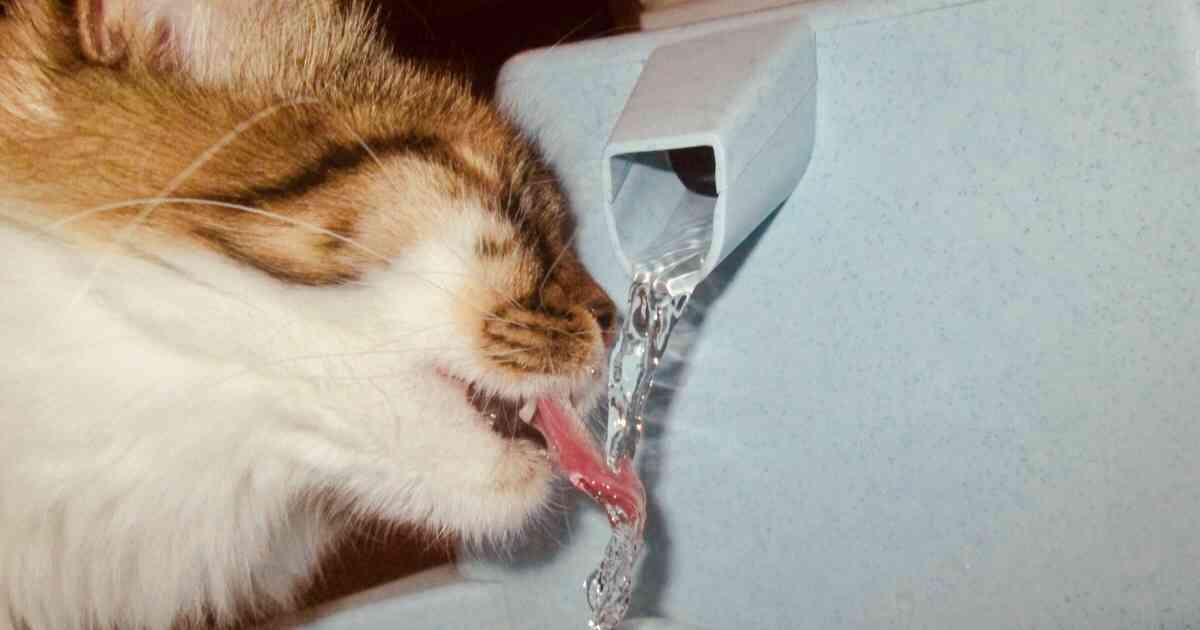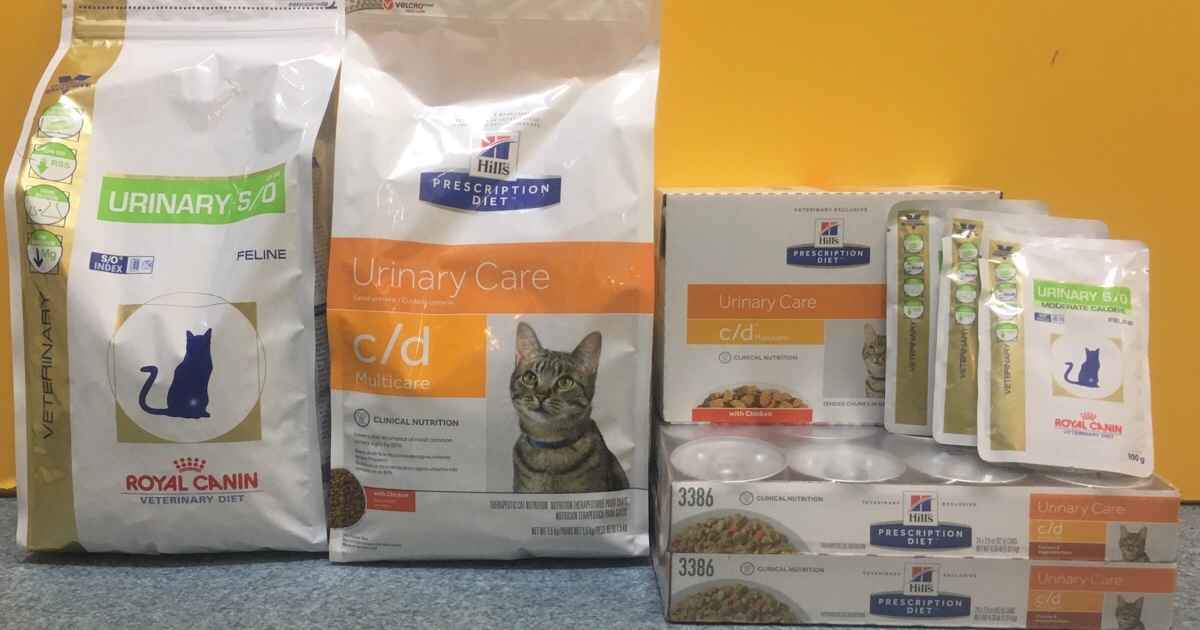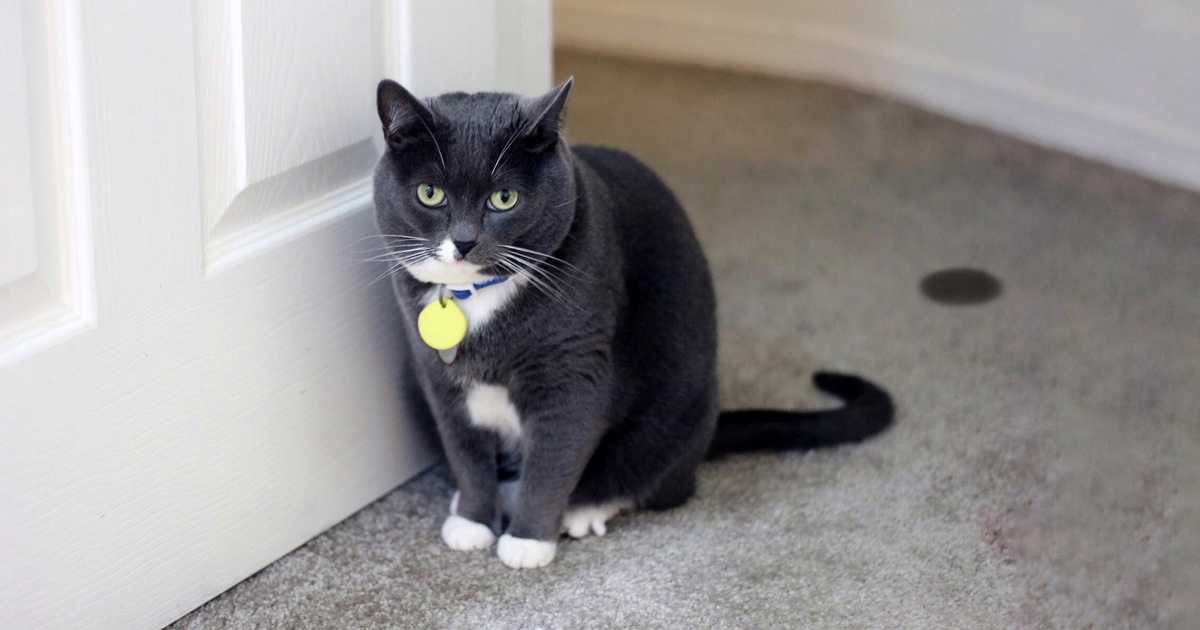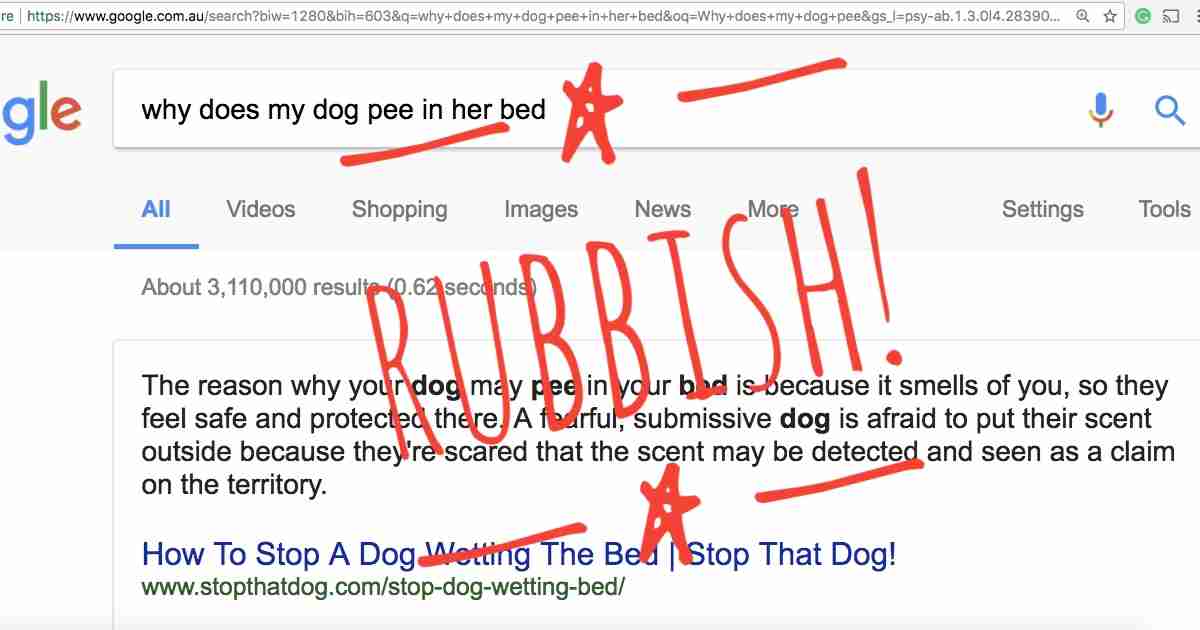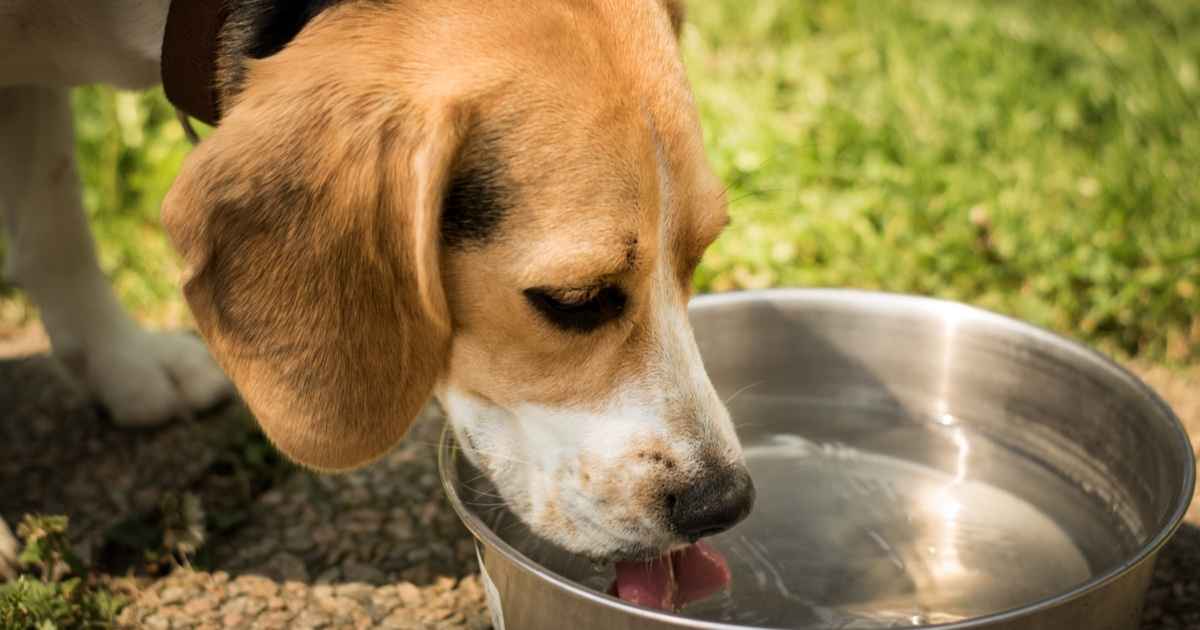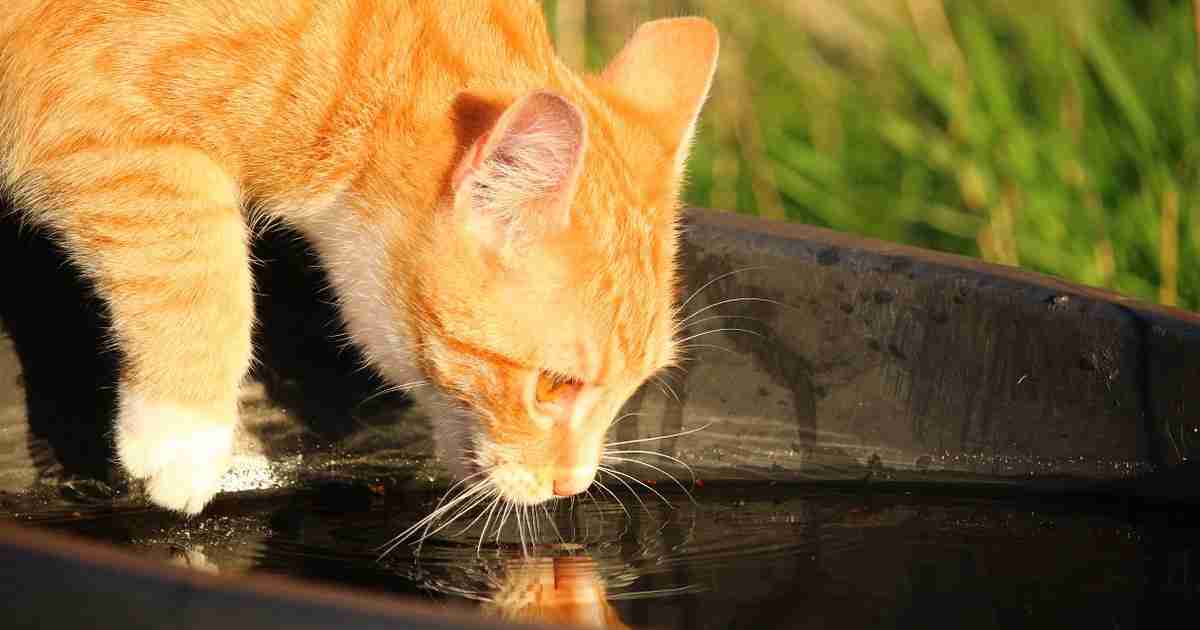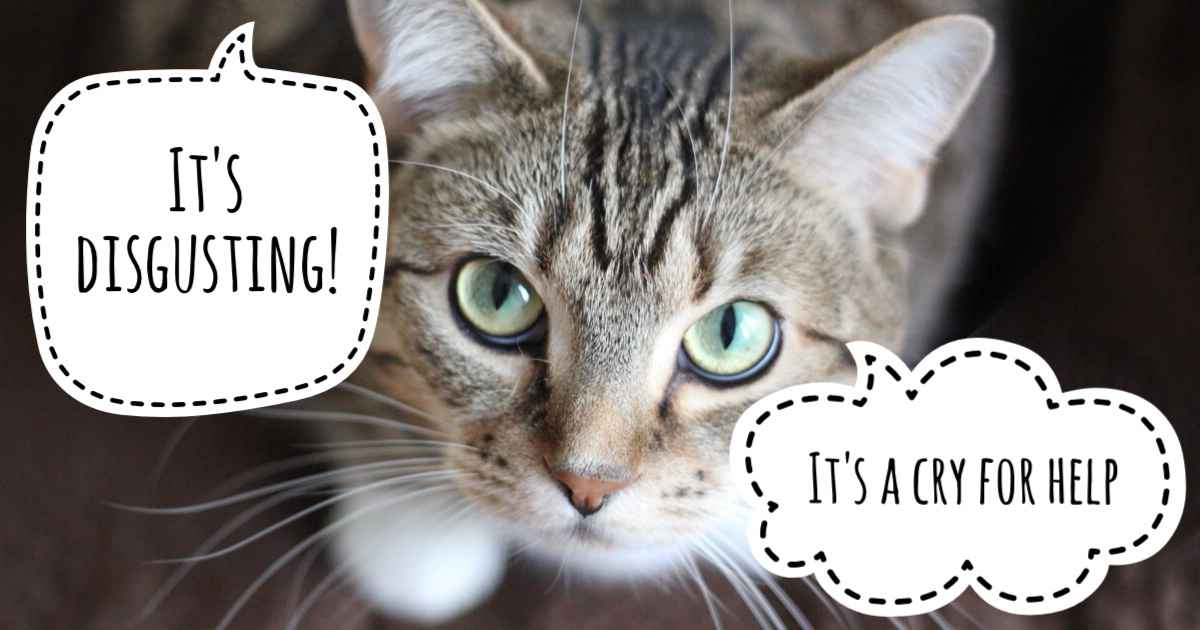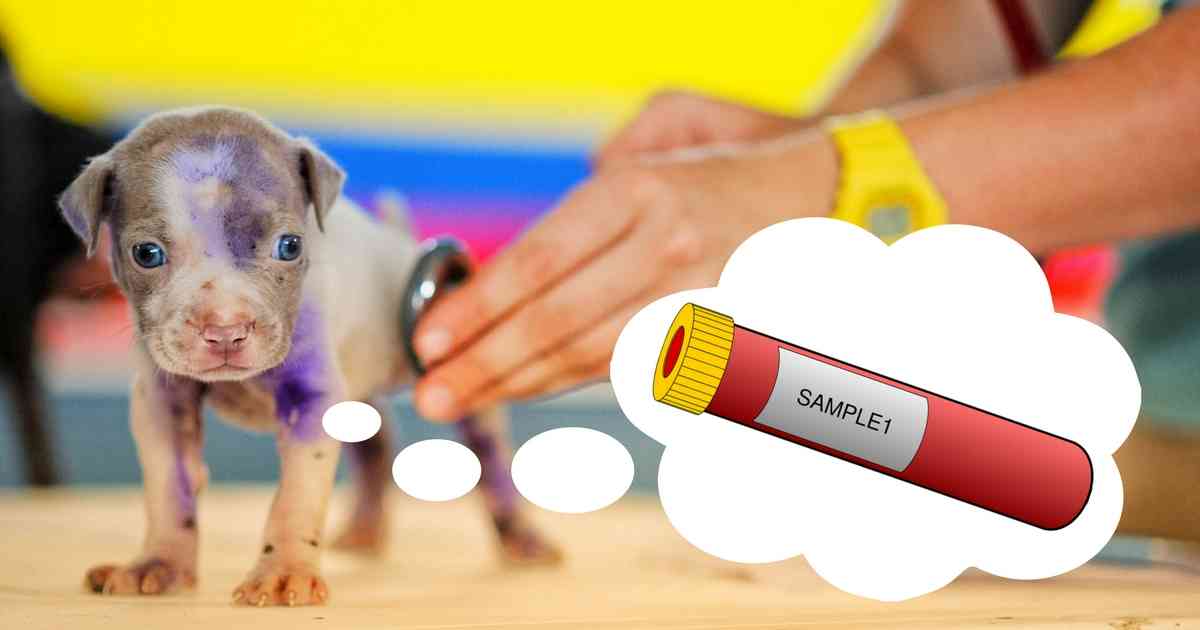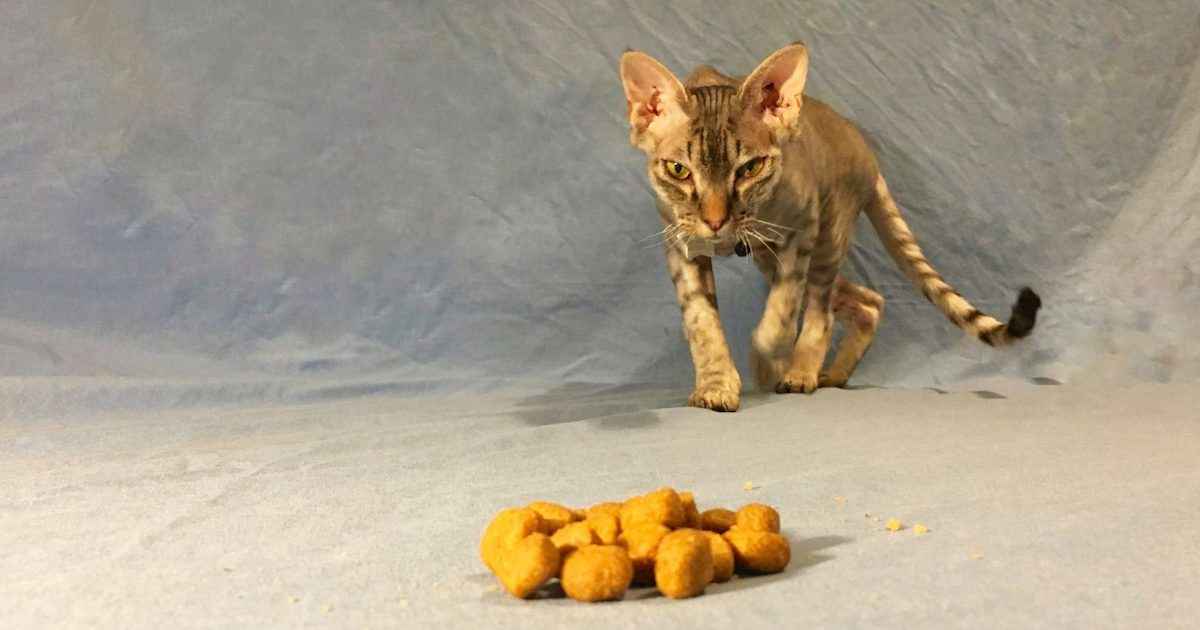I want to warn you about three emerging and important toxins of cats. I also want you to see the link between these products and how they may be just the tip of the iceberg in household poisonings.
Continue reading “New Cat Poisons: Hair Dyes, Hair Loss Treatments & Diclofenac”Help! My Dog Smells Bad (9 Reasons Why)
As a vet I often get dogs brought to me because they have a bad smell. Here I’m going to lead you through every common reason for a dog to stink even after a bath.
While not all are simple to fix, after reading this you should have a good idea of what to do. I’ll rank them in rough order of frequency.
Continue reading “Help! My Dog Smells Bad (9 Reasons Why)”Help! My Puppy Pees Inside Just After I’ve Taken Him Out
You spend an hour standing around on the grass and nothing happens. Then, almost as soon as you come back inside, your puppy pees in the house right in front of you!
You’ve read all the tips for toilet training. You understand the theory. So why does this happen?
There’s actually quite a simple explanation and a not-so-simple solution. Be prepared for some basic neurology!
Continue reading “Help! My Puppy Pees Inside Just After I’ve Taken Him Out”A Critical Review Of Feliway For Cats
For nearly my whole career, I have used and recommended Feliway® for situations involving feline anxiety and stress. These might be urine spraying, inter-cat aggression, or even trips to the vet and cattery.
I have always been reassured that there is strong scientific evidence for its effectiveness. So it took until 2021 for me to do a thorough literature review of my own. I was shocked by what I found.
It’s not that Feliway doesn’t work at all. It’s just that it probably doesn’t work for most of the things it’s been promoted for.
Continue reading “A Critical Review Of Feliway For Cats”What Is The Best Age To Neuter A Cavoodle
Whether you call it neuter, spay, castrate or desex, the right time to get it done in dogs is a subject of much debate. This is because it varies from breed to breed. Recently, a study was published on the best age for neutering small dog breeds like Cavoodles.
Continue reading “What Is The Best Age To Neuter A Cavoodle”What Is The Best Age To Neuter A Staffy
Whether you call it neuter, spay, castrate or desex, the right time to get it done in dogs is a subject of much debate. This is because it varies from breed to breed. Recently, a study was published on the best age for neutering 20-29kg dog breeds like the Staffy, AmStaff and Staffy crosses.
Continue reading “What Is The Best Age To Neuter A Staffy”What Is The Best Age To Neuter Large Breed Dogs
Whether you call it neuter, spay, castrate or desex, the right time to get it done in dogs is a subject of much debate. This is because it varies from breed to breed. Recently, a study was published on the best age for neutering large dog breeds.
Continue reading “What Is The Best Age To Neuter Large Breed Dogs”The Best Age To Neuter A Kelpie Sized Dog
Whether you call it neuter, spay, castrate or desex, the right time to get it done in dogs is a subject of much debate. This is because it varies from breed to breed. Recently, a study was published on the best age for neutering medium-sized dog breeds like Kelpies.
Continue reading “The Best Age To Neuter A Kelpie Sized Dog”What Is The Best Age To Neuter St Bernards
Whether you call it neuter, spay, castrate or desex, the right time to get it done in dogs is a subject of much debate. This is because it varies from breed to breed. Recently, a study was published on the best age for neutering in St Bernards.
Continue reading “What Is The Best Age To Neuter St Bernards”What Is The Best Age To Neuter Rottweilers
Whether you call it neuter, spay, castrate or desex, the right time to get it done in dogs is a subject of much debate. This is because it varies from breed to breed. Recently, a study was published on the best age for neutering in Rottweilers.
Continue reading “What Is The Best Age To Neuter Rottweilers”What Is The Best Age To Neuter A Pomeranian
Whether you call it neuter, spay, castrate or desex, the right time to get it done in dogs is a subject of much debate. This is because it varies from breed to breed. Recently, a study was published on the best age for neutering in Pomeranians.
Continue reading “What Is The Best Age To Neuter A Pomeranian”What Is The Best Age To Neuter A Poodle
Whether you call it neuter, spay, castrate or desex, the right time to get it done in dogs is a subject of much debate. This is because it varies from breed to breed. Recently, a study was published on the best age for neutering in all three Poodle breeds.
Continue reading “What Is The Best Age To Neuter A Poodle”What Is The Best Age To Neuter Miniature Schnauzers
Whether you call it neuter, spay, castrate or desex, the right time to get it done in dogs is a subject of much debate. This is because it varies from breed to breed. Recently, a study was published on the best age for neutering in Miniature Schnauzers.
Continue reading “What Is The Best Age To Neuter Miniature Schnauzers”What Is The Best Age To Neuter A Maltese
Whether you call it neuter, spay, castrate or desex, the right time to get it done in dogs is a subject of much debate. This is because it varies from breed to breed. Recently, a study was published on the best age for neutering in the Maltese.
Continue reading “What Is The Best Age To Neuter A Maltese”What Is The Best Age To Neuter A Labrador
Whether you call it neuter, spay, castrate or desex, the right time to get it done in dogs is a subject of much debate. This is because it varies from breed to breed. Recently, a study was published on the best age for neutering in Labradors.
Continue reading “What Is The Best Age To Neuter A Labrador”What Is The Best Age To Neuter Jack Russell Terriers
Whether you call it neuter, spay, castrate or desex, the right time to get it done in dogs is a subject of much debate. This is because it varies from breed to breed. Recently, a study was published on the best age for neutering in Jack Russell Terriers.
Continue reading “What Is The Best Age To Neuter Jack Russell Terriers”What Is The Best Age To Neuter Irish Wolfhounds
Whether you call it neuter, spay, castrate or desex, the right time to get it done in dogs is a subject of much debate. This is because it varies from breed to breed. Recently, a study was published on the best age for neutering in Irish Wolfhounds.
Continue reading “What Is The Best Age To Neuter Irish Wolfhounds”What Is The Best Age To Neuter A Great Dane
Whether you call it neuter, spay, castrate or desex, the right time to get it done in dogs is a subject of much debate. This is because it varies from breed to breed. Recently, a study was published on the best age for neutering in Great Danes.
Continue reading “What Is The Best Age To Neuter A Great Dane”What Is The Best Age To Neuter Golden Retrievers
Whether you call it neuter, spay, castrate or desex, the right time to get it done in dogs is a subject of much debate. This is because it varies from breed to breed. Recently, a study was published on the best age for neutering in Golden Retrievers.
Continue reading “What Is The Best Age To Neuter Golden Retrievers”What Is The Best Age To Neuter German Shepherds
Whether you call it neuter, spay, castrate or desex, the right time to get it done in dogs is a subject of much debate. This is because it varies from breed to breed. Recently, a study was published on the best age for neutering in German Shepherds.
Continue reading “What Is The Best Age To Neuter German Shepherds”What Is The Best Age To Neuter Springer Spaniels
Whether you call it neuter, spay, castrate or desex, the right time to get it done in dogs is a subject of much debate. This is because it varies from breed to breed. Recently, a study was published on the best age for neutering in Springer Spaniels.
Continue reading “What Is The Best Age To Neuter Springer Spaniels”What Is The Best Age To Neuter A Doberman
Whether you call it neuter, spay, castrate or desex, the right time to get it done in dogs is a subject of much debate. This is because it varies from breed to breed. Recently, a study was published on the best age for neutering in Dobermans.
Continue reading “What Is The Best Age To Neuter A Doberman”What Is The Best Age To Neuter A Corgi
Whether you call it neuter, spay, castrate or desex, the right time to get it done in dogs is a subject of much debate. This is because it varies from breed to breed. Recently, a study was published on the best age for neutering in Corgis.
Continue reading “What Is The Best Age To Neuter A Corgi”What Is The Best Age To Neuter A Collie
Whether you call it neuter, spay, castrate or desex, the right time to get it done in dogs is a subject of much debate. This is because it varies from breed to breed. Recently, a study was published on the best age for neutering in Collies.
Continue reading “What Is The Best Age To Neuter A Collie”What Is The Best Age To Neuter A Cocker Spaniel
Whether you call it neuter, spay, castrate or desex, the right time to get it done in dogs is a subject of much debate. This is because it varies from breed to breed. Recently, a study was published on the best age for neutering in Cocker Spaniels.
Continue reading “What Is The Best Age To Neuter A Cocker Spaniel”What Is The Best Age To Neuter A Chihuahua
Whether you call it neuter, spay, castrate or desex, the right time to get it done in dogs is a subject of much debate. This is because it varies from breed to breed. Recently, a study was published on the best age for neutering in Chihuahuas.
Continue reading “What Is The Best Age To Neuter A Chihuahua”The Best Age To Neuter Cavalier King Charles Spaniels
Whether you call it neuter, spay, castrate or desex, the right time to get it done in dogs is a subject of much debate. This is because it varies from breed to breed. Recently, a study was published on the best age for neutering in Cavalier King Charles Spaniels.
Continue reading “The Best Age To Neuter Cavalier King Charles Spaniels”What Is The Best Age To Neuter A Bulldog
Whether you call it neuter, spay, castrate or desex, the right time to get it done in dogs is a subject of much debate. This is because it varies from breed to breed. Recently, a study was published on the best age for neutering in Bulldogs.
Continue reading “What Is The Best Age To Neuter A Bulldog”What Is The Best Age To Neuter A Boston Terrier
Whether you call it neuter, spay, castrate or desex, the right time to get it done in dogs is a subject of much debate. This is because it varies from breed to breed. Recently, a study was published on the best age for neutering in Boston Terriers.
Continue reading “What Is The Best Age To Neuter A Boston Terrier”What Is The Best Age To Neuter A Border Collie
Whether you call it neuter, spay, castrate or desex, the right time to get it done in dogs is a subject of much debate. This is because it varies from breed to breed. Recently, a study was published on the best age for neutering in Border Collies.
Continue reading “What Is The Best Age To Neuter A Border Collie”The Best Age To Neuter A Bernese Mountain Dog
Whether you call it neuter, spay, castrate or desex, the right time to get it done in dogs is a subject of much debate. This is because it varies from breed to breed. Recently, a study was published on the best age for neutering in Bernese Mountain Dogs.
Continue reading “The Best Age To Neuter A Bernese Mountain Dog”What Is The Best Age To Neuter A Beagle
Whether you call it neuter, spay, castrate or desex, the right time to get it done in dogs is a subject of much debate. This is because it varies from breed to breed. Recently, a study was published on the best age for neutering in Beagles.
Continue reading “What Is The Best Age To Neuter A Beagle”What Is The Best Age To Neuter Australian Shepherds
Whether you call it neuter, spay, castrate or desex, the right time to get it done in dogs is a subject of much debate. This is because it varies from breed to breed. Recently, a study was published on the best age for neutering in Australian Shepherds.
Continue reading “What Is The Best Age To Neuter Australian Shepherds”What Is The Best Age To Neuter Australian Cattle Dogs
Whether you call it neuter, spay, castrate or desex, the right time to get it done in dogs is a subject of much debate. This is because it varies from breed to breed. Recently, a study was published on the best age for neutering in Australian Cattle Dogs, also called Heelers.
Continue reading “What Is The Best Age To Neuter Australian Cattle Dogs”What Is The Best Age To Neuter A Boxer?
Whether you call it neuter, spay, castrate or desex, the right time to get it done in dogs is a subject of much debate. This is because it varies from breed to breed. Recently, a study was published on the best age for neutering in Boxers.
Continue reading “What Is The Best Age To Neuter A Boxer?”How To Get Urine From Dogs & Cats
Has your vet asked you to collect a urine sample from your pet? Don’t despair! I’ve been guiding people through it for 25 years and no-one has failed yet.
Before we start, it might help to know why a pee sample can be important.
Continue reading “How To Get Urine From Dogs & Cats”What Is The Best Cat Litter?
I have no idea how most cat owners end up choosing a cat litter. If my experiences are anything to go by, it’s trial and error. I doubt they try more than a few before settling on a favourite.
This is a vet review of the common and popular types of cat litter in stores. I’ll help you understand:
- the choices of cat litter
- the problems with each type
- and the evidence for which ones cats prefer
Do Cats Need A Water Fountain?
Isn’t it always the way. You’ve been recommending something for 25 years with complete confidence. Then along comes a piece of very inconvenient evidence.
This time it’s about cats preferring moving water. It turns out that despite a whole industry devoted to promoting cat fountains, until now no one has bothered to see if they actually work.
Continue reading “Do Cats Need A Water Fountain?”Grape Sultana & Raisin Poisoning
‘Essential facts (Details Below)’
When A Dog Eats Grape Products
- Grapes are toxic whether dried, fresh or cooked
- The toxic dose is unknown and highly variable
- Removal via vomiting and treatment of kidney damage gives good results
Now dive deeper…
Continue reading “Grape Sultana & Raisin Poisoning”Help! My Cat Keeps Trying To Pee
Emergency Care’ (details below)
When A Cat Tries To Pee But Nothing Happens
- Many male cats trying to pee have urinary obstructions
- Seek emergency vet help ASAP if your cat cannot pass urine
- Untreated blockages causes extreme suffering and rapid death
Now dive deeper…
Continue reading “Help! My Cat Keeps Trying To Pee”Help! My Cat Is Peeing Everywhere: Cystitis
Cystitis in cats is a fascinating disease. How many other illnesses are more common after rainy weather or moving house? Or how about the fact that it usually isn’t caused by infection?
Continue reading “Help! My Cat Is Peeing Everywhere: Cystitis”Early Age Desexing and Incontinence
If the only way you could have a certain puppy was if they were already desexed, would it be a deal-breaker for you? It would be for me.
It’s not a trivial issue. Many breeds in Australia come already desexed by the breeder before sale. I can see why they do it, but as a vet, it makes me uncomfortable. What’s the big deal?
Continue reading “Early Age Desexing and Incontinence”Help! My Dog Is Peeing Inside
‘At A Glance (Details Below)’ What To Do
If A Dog Urinates In The House
- Urinating in the bed is almost never a behavioural issue
- Most cases are an easily treatable form of incontinence
- A loss of toilet training in an older dog is often caused by urinary infection, excessive thirst and mobility or cognition problems
Now dive deeper…
Help! My Dog Is Drinking A Lot
‘At A Glance (Details Below)’ What To Do
If A Dog Drinks More Than Usual
- When dogs drink more it’s usually hormonal or kidney issues
- These are all easily diagnosed on routine blood & urine testing
- The top cause in small breed dogs is Cushings Disease
- If testing is normal, there’s usually nothing to worry about
Now dive deeper…
Help! My Cat Is Drinking A Lot
‘At A Glance (Details Below)’ What To Do
If A Cat Drinks More Than Usual
- It could be due to diabetes, kidney or thyroid disease
- These are all easily diagnosed on routine blood & urine testing
- The top three causes can all be managed or treated if detected in time
- If testing is normal, there’s usually nothing to worry about
Now dive deeper…
Help! My Cat Is Peeing Inside
‘At A Glance (Details Below)’ What To Do
Why Cats Urinate In The House
- The cause is usually anxiety, territorial stress, urinary tract disease or litter box problems
- It’s not bad behaviour; most cats will stop peeing inside if you treat the cause and don’t punish
- Clean up areas with cat urine using enzymatic cleaners to reduce odour and prevent recurrence
Now dive deeper.
Common Problems Of Dogs, Cats, Rabbits & Chickens
Follow the links for information on:
- Aggression At The Vet | Dogs
- Anal Glands | Dogs
- Arthritis Treatment | Dogs | Cats | Rabbits
- Barking | Dogs
- Back Leg Problems | Dogs | Rabbits
- Bee Sting | Dogs
- Bloat | Dogs
- Calicivirus | Rabbits
- Car Accidents | Cats
- Car Sickness | Dogs
- Cat Fight Wounds | Cats
- Cat Flu | Cats
- Cataracts | Dogs
- Chocolate poisoning | Dogs
- Choking or Gagging | Dogs
- Constipation | Cats
- Coughing | Dogs
- Cruciate Ligament Tears | Dogs
- Cushings Disease | Dogs
- Cuts & Wounds | Dogs, Cats & Rabbits
- Cystitis | Cats
- Dandruff | Cats
- Deafness | Dogs & Cats
- Dermatitis, Itching & Eczema | Dogs
- Diabetes | Dogs & Cats
- Diarrhoea | Dogs
- Drinking More Than Usual | Dogs | Cats
- Ear Infections | Dogs
- Ear Swelling | Dogs
- Ear Tip Sores | Dogs
- Eating Rat Poison | Dogs
- Egg Binding/Peritonitis | Chickens
- Eye Problems | Dogs & Cats
- Flea Infestations | Dogs, Cats & Rabbits
- Food Allergies | Dogs & Cats
- Gastrointestinal Stasis | Rabbits
- Genetic Disease | Dogs | Cats
- Giving Birth | Dogs
- Giving Tablets | Cats
- Grape Poisoning | Dogs
- Grass Seeds | Dogs
- Hair Loss and Overgrooming | Cats | Rats
- Heart Diseases & Failure | Dogs & Cats
- Heart Murmurs | Dogs
- Heat Stress & Stroke | Dogs
- Hip Dysplasia | Dogs
- Injuries Car & Road | Cats
- Injuries | Rabbits
- Kennel Cough | Dogs
- Kidney Disease & Failure | Dogs & Cats | Rabbits
- Licking Feet | Dogs
- Limping | Dogs
- Lip & Mouth Sores | Cats
- Lost Or Missing Pets | Dogs, Cats & Rabbits
- Lumps | Dogs | Rabbits
- Lumps In The Mouth | Dogs
- Mite infestation | Guinea Pigs
- Mycoplasma Respiratory Disease | Rats
- Myxomatosis | Rabbits
- Not Eating | Cats | Rabbits
- Onion Eating | Dogs
- Overgrown Teeth | Rabbits
- Overweight | Dogs Cats
- Pancreatic Inflammation | Dogs | Cats
- Patellar Luxation Surgery | Dogs
- Poisoning | Dogs
- Respiratory Infections | Chickens
- Scratching & Itching | Dogs
- Seizures & Fits | Dogs
- Separation Anxiety | Dogs
- Skin Infections & Hotspots | Dogs
- Snake Bite | Dogs & Cats
- Teeth Cleaning & Dentistry Options | Dogs & Cats
- Thunderstorm & Firework Fear | Dogs
- Tick Paralysis | Dogs & Cats
- Thyroid & Hyperthyroid | Cats
- Urinary Obstruction | Cats
- Urinating Inside | Cats | Dogs
- Vomiting | Dogs | Cats
- Walking & On Leash Aggression | Dogs
- Yelping in Pain | Dogs
What Are Pet Blood Tests For?
You’ve probably noticed how much we like blood tests. Every year when your dog or cat has their annual checkup or when your pet needs an anaesthetic we ask you if you want blood testing.
Is this just over-servicing or are there good reasons to check?
Continue reading “What Are Pet Blood Tests For?”Help! My Cat Won’t Eat
‘At A Glance (Details Below)’ Quick Care Guide
How To Get A Cat To Eat
- Try a familiar food first: moist, smelly foods are usually tastier.
- Warm the food up to body temperature.
- Try flavourings like fish, kangaroo or gravy.
- Only happy cats eat, so give them plenty of pats.
- Get a vet to check that your cat isn’t sick or stressed.
Now dive deeper.
Getting Cats To Drink Water
Sometimes cats don’t drink enough, and we worry. Sometimes they drink too much and we worry more! Cats’ drinking habits give us more worries than almost anything else.


